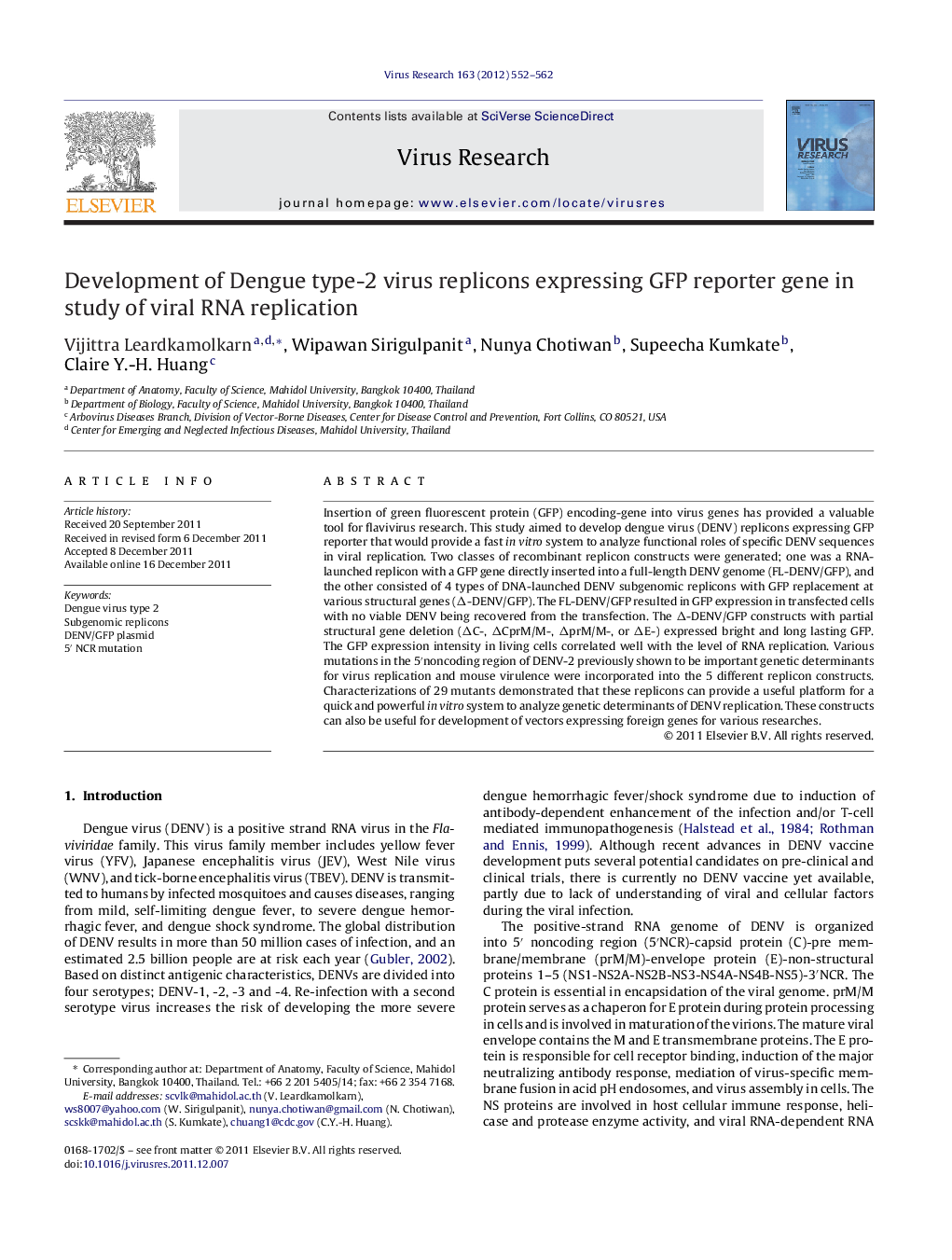| کد مقاله | کد نشریه | سال انتشار | مقاله انگلیسی | نسخه تمام متن |
|---|---|---|---|---|
| 3428902 | 1228232 | 2012 | 11 صفحه PDF | دانلود رایگان |

Insertion of green fluorescent protein (GFP) encoding-gene into virus genes has provided a valuable tool for flavivirus research. This study aimed to develop dengue virus (DENV) replicons expressing GFP reporter that would provide a fast in vitro system to analyze functional roles of specific DENV sequences in viral replication. Two classes of recombinant replicon constructs were generated; one was a RNA-launched replicon with a GFP gene directly inserted into a full-length DENV genome (FL-DENV/GFP), and the other consisted of 4 types of DNA-launched DENV subgenomic replicons with GFP replacement at various structural genes (Δ-DENV/GFP). The FL-DENV/GFP resulted in GFP expression in transfected cells with no viable DENV being recovered from the transfection. The Δ-DENV/GFP constructs with partial structural gene deletion (ΔC-, ΔCprM/M-, ΔprM/M-, or ΔE-) expressed bright and long lasting GFP. The GFP expression intensity in living cells correlated well with the level of RNA replication. Various mutations in the 5′noncoding region of DENV-2 previously shown to be important genetic determinants for virus replication and mouse virulence were incorporated into the 5 different replicon constructs. Characterizations of 29 mutants demonstrated that these replicons can provide a useful platform for a quick and powerful in vitro system to analyze genetic determinants of DENV replication. These constructs can also be useful for development of vectors expressing foreign genes for various researches.
► We construct a full-length dengue virus replicon with GFP gene (FL-DENV/GFP) and a subgenomic replicon with GFP replacement at various structural genes (D-DENV/GFP).
► The FL-DENV/GFP exhibits GFP expression in transfected cells with no viable DENV progeny being produced.
► The GFP expression intensity in living cells correlates well with the level of RNA replication.
Journal: Virus Research - Volume 163, Issue 2, February 2012, Pages 552–562